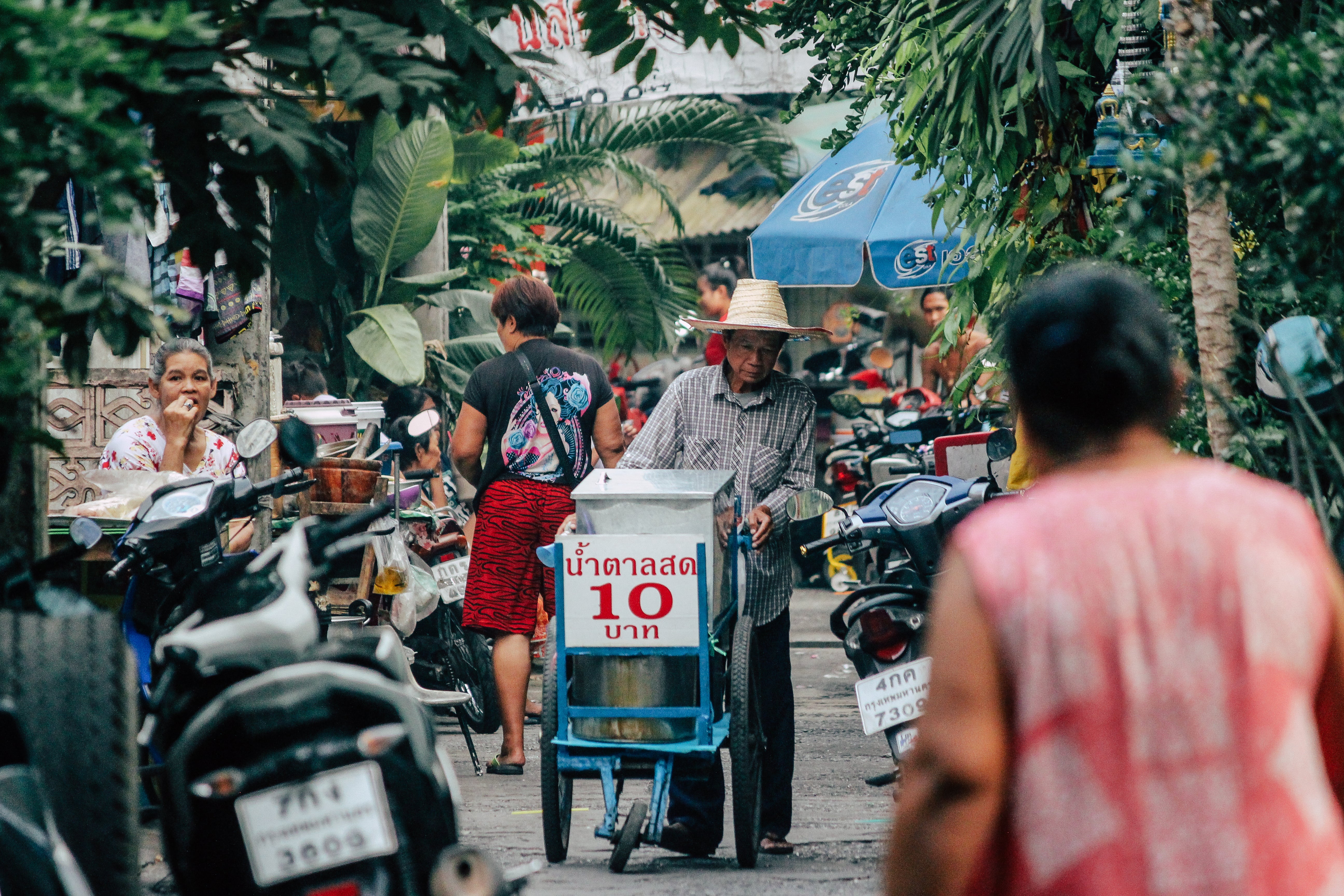 In Thailand, COVID-19 will worsen an already challenging situation for households facing droughts, stagnant wage growth, and rising poverty.
In Thailand, COVID-19 will worsen an already challenging situation for households facing droughts, stagnant wage growth, and rising poverty.
The coronavirus pandemic (COVID-19) has touched people from all walks of life. Across Thailand, children have been home from school, employees have been working from home, and business owners have struggled to remain viable. All of us have been learning to conduct our daily lives. The less fortunate have lost their jobs or incomes and must seek alternative livelihoods. And this poses the question, how can Thailand limit the impact on its economy by expanding safety nets for the vulnerable and rethinking social protection?
COVID-19 will worsen an already challenging situation for households facing droughts, stagnant wage growth, and rising poverty. Poverty rates had risen already in 2016 and 2018, according to the World Bank’s report, Taking the Pulse of Poverty and Inequality in Thailand report. Now, as economic activity declines, job and income loss will likely worsen household welfare.
Declining incomes pose a serious challenge for poverty reduction. Labor market income represents a significant share of households’ income, and declines will reduce their ability to pay bills and satisfy basic needs. Income from remittances is also important – more so than public assistance income – but with migrants unable to work, this source of funds is also expected to decline. With low savings, there is little space for households to smooth consumption to cope with the income shock.
More than half of workers in Thailand are informal, meaning they are not covered by a social security scheme and are particularly vulnerable. In 2018, there were an estimated 21.2 million informal and 17.1 million formal workers. Besides agriculture, with a 92% informality rate, jobs in commerce have the second highest rate of informality at 60%.
Thailand’s social protection system faces several challenges in the face of these emerging needs. Spending on social protection lags behind other countries: in 2015, Thailand spent an estimated 3.7% of GDP on it, compared to 6.3% in Vietnam and China and 10.1% in high-income Korea. Unlike China, Malaysia, Mexico and other upper-middle-income countries, Thailand lacks a generalized safety net program for the poor, though the existing welfare card scheme is a step in this direction.
The government has taken important steps to confront the economic challenges facing households. It has introduced a series of fiscal and monetary packages beginning in January, with the most recent announced in early April. The announced policy measures total approximately 15% of GDP, among the highest in East Asia and the Pacific. These packages include soft loans and relaxed loan repayments, reduced social security contributions, and tax deductions for SMEs linked to employment retention. The most significant measure is a cash transfer of 5,000 baht/month for six months for informal workers not covered by the Social Security Fund.
Even with a contained spread of the outbreak in Thailand, the economy will be affected by a global recession and weakening domestic growth. Key concerns include: (i) much lower tourist arrivals and, as a result, weaker activity in the retail and accommodation sectors; (ii) weaker domestic consumption, reflecting depressed consumer sentiment and wage and job losses as businesses cope with the crisis; and (iii) slowing production in key supply chains, such as electronics and automotives, that are critical to Thailand’s exports.
As a result, the World Bank has revised Thailand’s growth projections for 2020 down from 2.9% (in October 2019) to a range of -3.0% to -5.0%, reflecting a sharp economic contraction. While economic pain seems inevitable, swift policy actions to save lives and preserve jobs – especially for the poor and vulnerable – can cushion some of the impacts.
The government can make sure that particularly vulnerable groups, including migrants, older people, and pregnant women are protected. Other ways to enhance social assistance can include providing employment subsidies and building on initial measures to making the unemployment insurance system more generous. As the economy emerges from social distancing, the government can consider scaling up its reskilling and upskilling measures for unemployed workers.
In the medium term, a key action that Thailand can consider is building a fit-for-purpose social protection system. Here are some important steps.
- The most immediate priority is ensuring a minimum package of benefits for the most vulnerable; it will require significant resources for the government to complement household and individual efforts. This may require increases in budget allocations for social protection beyond the immediate response to COVID-19, to bring this spending to the levels of peer countries.
- It is also important to build effective delivery mechanisms for social protection programs. In the immediate response to COVID-19, Thailand has rightly prioritized ways to deliver cash transfers quickly to a large share of the population. Over time, it could consider establishing programs with universal benefits to help cushion epidemic outbreaks that may occur in the medium term as well as other negative shocks, complemented by more targeted (and generous) programs for the poor. For the latter, Thailand will need better targeting mechanisms.
- In both the medium and long term, social protection will need to be complemented by labor market policies tailored to the needs of a knowledge-based economy. Training and employment services programs need to be reformed to reflect shifting demand in the labor market, toward more socioemotional skills and higher-order cognitive and technical skills.
COVID-19’s economic impacts create an opportunity to rethink the traditional, employment-based foundations of social protection policy in Thailand. A fit-for-purpose social protection system should suit the changing nature of work and an economy with high rates of informality. It should meet the needs of the poor and the most vulnerable, while ensuring fiscal sustainability. It also needs to be nimble to be able to respond quickly to threats like pandemics.
A version of this article appeared in Thai Publica.





Join the Conversation